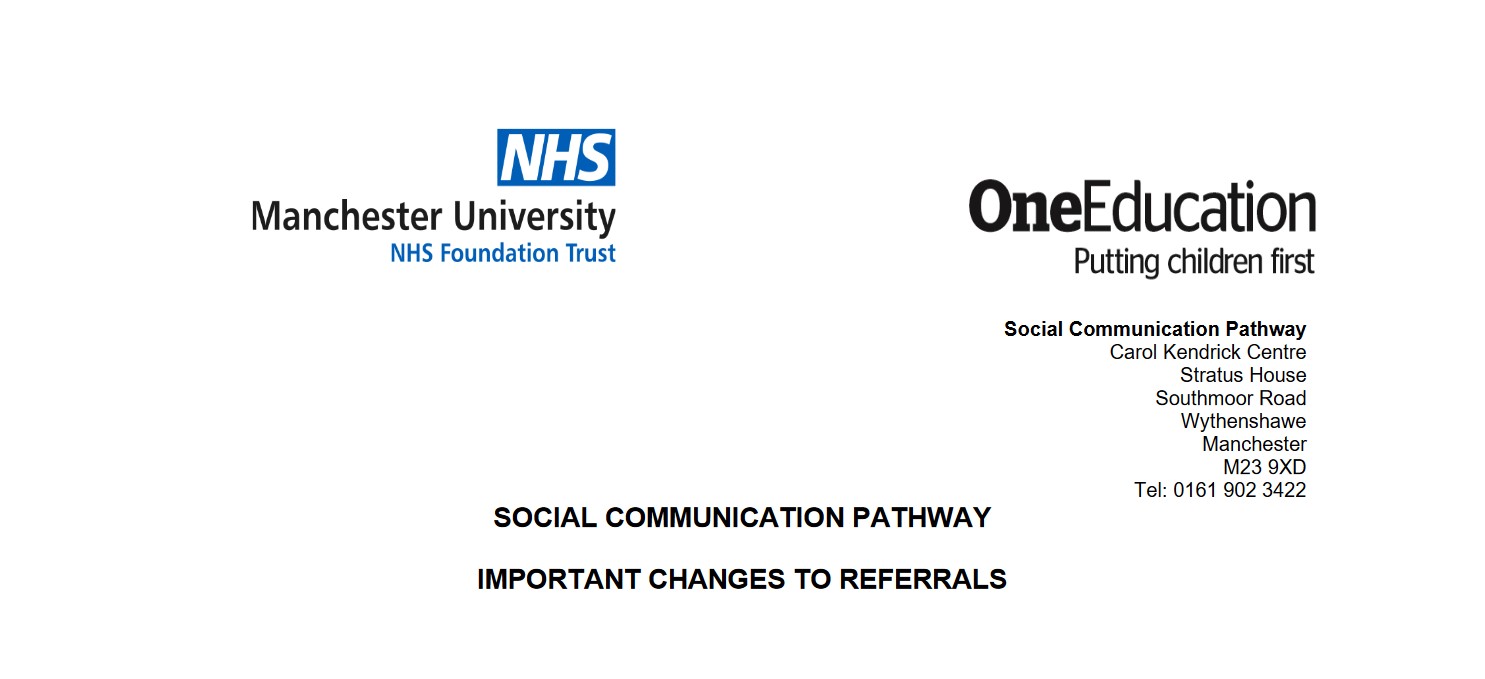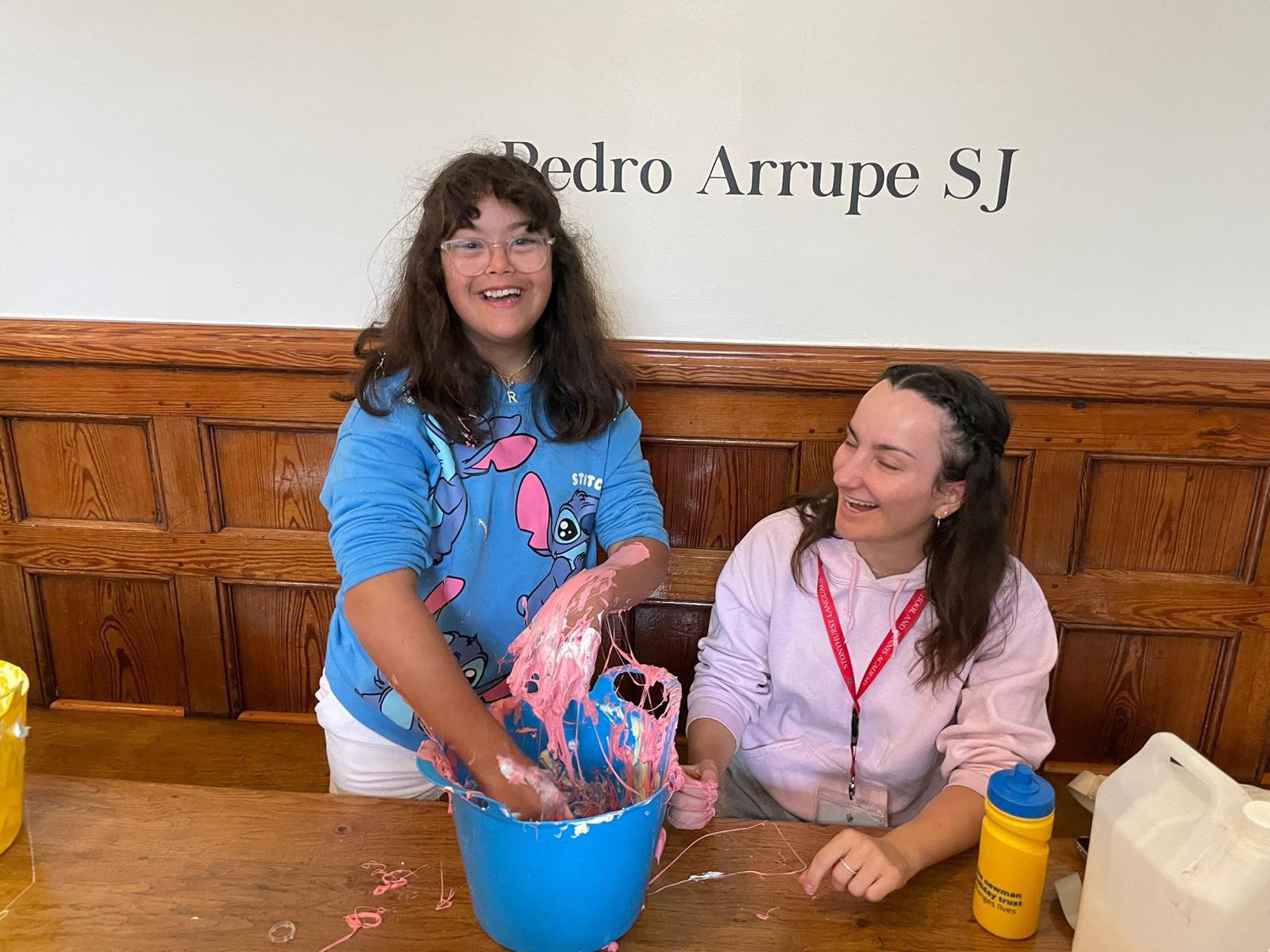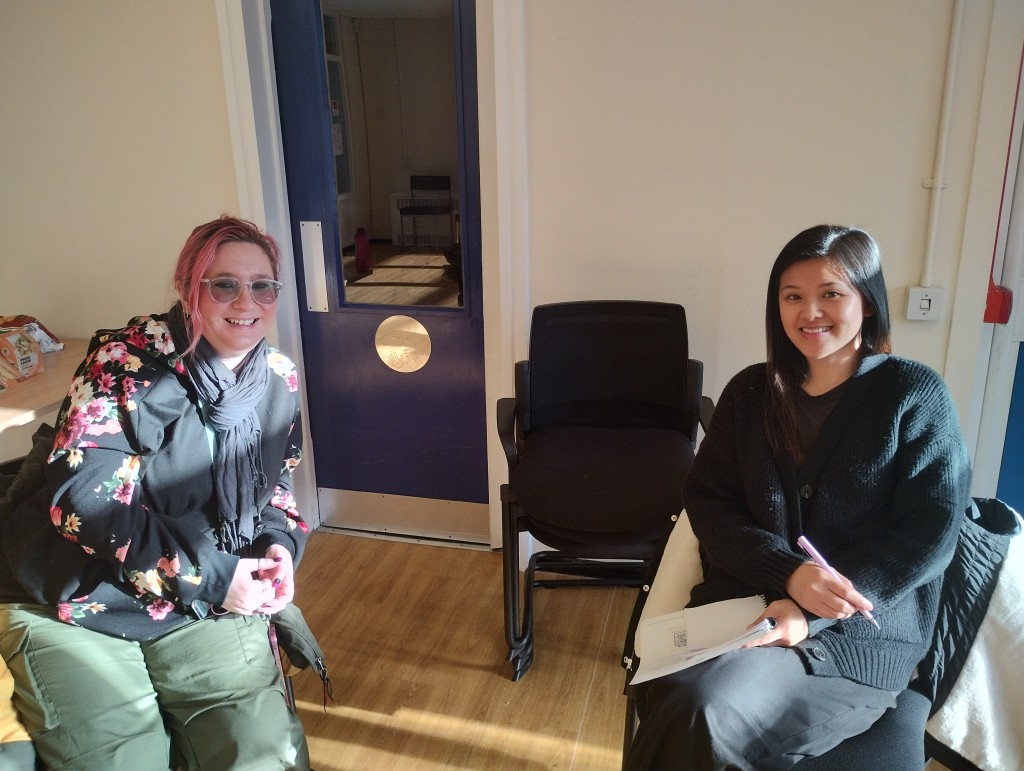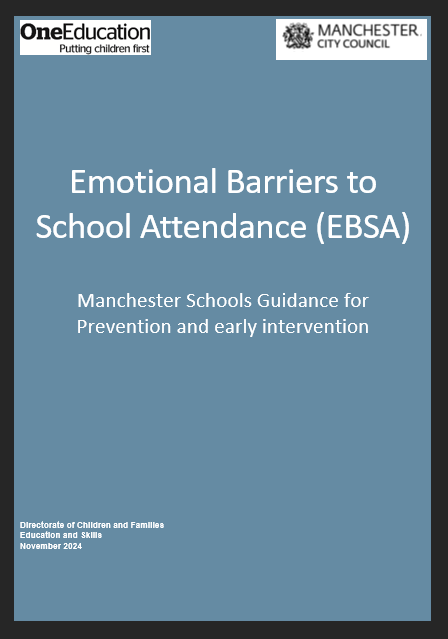Please see below a letter explaining some changes to the Social Communication Pathway (SCP) referral process.
In summary, the changes are:
- For Early Years children (aged 3 to 5): The SCP will only accept referrals for those who have had exposure to community group interventions or who have been attending nursery or a childminder for 6 months.
- For school-aged children (aged 5 and up): Referrals need to come with a plan of support to show what interventions are being tried to support the children and young people being referred. What have schools have done over the course of a two-term period to support the needs they are describing (e.g. child or young person has attended a lego therapy group to develop play skills or a nurture room/intervention to support with attachment or anxiety issues)? What was the outcome and how are schools supporting post-Covid issues? Where possible, the SCP will also be asking schools to gather information about the young person from the pre-pandemic period as they will need evidence of social communication issues over a developmental time period.
These changes took effect on the 30th of May 2022.
You can read or download the letter using the PDF Reader below, or scroll to the bottom of the page to read a transcript of the letter that has been edited for readability.
Please use the buttons on the document reader to scroll, zoom in/out, enter full screen mode, or to download the document in PDF format.
Here is a transcript of the above letter that has been edited for readability:
There has been an unprecedented increase in referrals recently to the Social Communication Pathway in recent months. The increase is far higher than would be expected for the prevalence of autism within the local population. This has resulted in difficulties triaging and responding to queries about referrals and there are now significant waits for autism assessments across the city.
Some of this increase seems related to the impact of the pandemic. All children have missed crucial parts of their social and emotional learning and we are aware there are heightened levels of anxiety and mental health difficulties for young people. Young children have not had the exposure to social settings in order to practice social skills, and children’s language development may have been affected. There are clearly high levels of need across all age groups and children and families are showing and telling us that they are struggling more.
To try and make sure that the right children are accessing the Social Communication Pathway we are going to be making some changes to our referral criteria.
From 30.5.22 we will only accept:
Why are we making this change?
This is to give young children time to catch up on some areas of their development that they might have missed out on during lockdown.
We are also making this change because the diagnostic manuals that we use to assess autism clearly state that a diagnosis can only be given if children have had some exposure to typical social development.
Will there be any exceptions to this?
We will consider exceptions for children who have one or more autistic siblings or an autistic parent, in consultation with their health visitor.
Why are we doing this?
It is important that we recognise the impact of the lockdown on some children and have tried to manage this impact before we think about conditions such as autism. A diagnosis of autism can only be made where social communication differences are evident over a developmental period.
It is also extremely important that children and young people are given support for the needs that they have, regardless of whether they receive a diagnosis or not.
Children will be waiting a significant amount of time to be seen and there needs to be a plan in place to support that child in the interim.
Will there be any exceptions to this?
If children and young people do not have a school place or have Anxiety-Based School Avoidance; their parent/carer can still make a referral to the team.
Is there any additional support around appropriate interventions or signposting?
One Education are leading the development of a training package which will be launched in September to help schools think about the impact of COVID and lockdown, reasonable adjustments that can be made to support children and young people at this time, and interventions they may be able to try to ease stress, anxiety and behavioural issues observed in the return to school post-lockdown.
We recognise that it has been difficult to contact the SCP team in recent months. Unfortunately, we have had some vacancies in administration that have meant we have been unable to answer telephone queries. We remain unable to answer queries about individual waiting times but would reassure all parents and referrers that if they email the referral forms and receive a standard email in return, the service has received this referral and it will be processed as soon as team capacity allows.







Leave A Comment